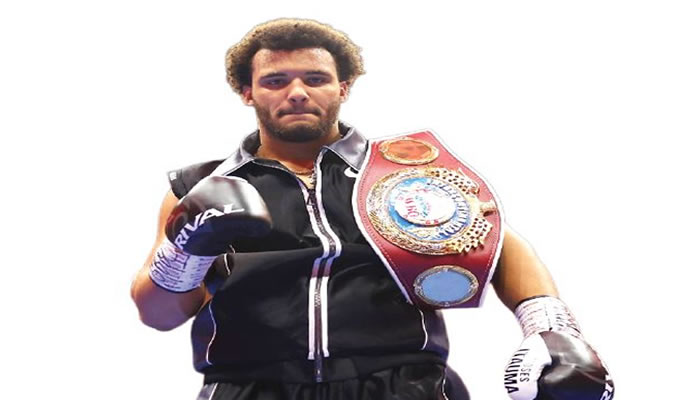The trajectory of Moses Itauma’s burgeoning boxing career has ignited a discussion about his potential to achieve the same level of superstardom as Anthony Joshua. While Itauma, at only 20 years old, displays remarkable promise and knockout power, seasoned boxing figures like former cruiserweight world champion Tony Bellew argue that replicating Joshua’s widespread commercial success and global brand recognition is a near-impossible feat. Joshua’s extensive endorsements and partnerships with major brands like Lynx, Under Armour, Lucozade, and Hugo Boss have elevated him beyond the realm of boxing, transforming him into a global icon with unmatched marketability.
Bellew, during a panel discussion on First Round TV, emphasized the unique nature of Joshua’s appeal. He pointed to Joshua’s Olympic gold medal win on home soil, his ability to “shut down” Nigeria with his presence, and his status as the “face of heavyweight boxing” as irreplicable achievements that solidify his place in boxing history. These achievements, coupled with his extensive commercial success, create a “whole package” that distinguishes him from emerging talents like Itauma. The discussion highlighted the crucial distinction between athletic prowess and commercial viability in the modern boxing world.
Dave Allen, echoing Bellew’s sentiments, went further, declaring Joshua “bigger than boxing.” This statement emphasizes the transcendent nature of Joshua’s fame, positioning him as a figure whose influence extends beyond the confines of the sport and into mainstream popular culture. This widespread recognition, cultivated through strategic marketing and a carefully constructed public persona, creates an aura around Joshua that few boxers can rival. For Itauma to reach similar heights, he would not only have to dominate the heavyweight division but also cultivate a similar level of mass appeal and market himself as a global brand.
Propa Boxing, a popular boxing YouTuber, acknowledged Itauma’s impressive skillset and potential to surpass Joshua’s boxing achievements. However, he concurred with Bellew and Allen’s assessment, recognizing the insurmountable gap in their “star power”. Joshua, he stated, is a “walking brand,” illustrating how the boxer’s image and marketability have become inextricably linked to his sporting prowess. This brand recognition generates lucrative endorsement deals and global recognition that extend far beyond the reach of a typical boxer, even a highly skilled one.
Itauma, despite his youth, has garnered considerable attention with his undefeated record and destructive power, drawing comparisons to a young Mike Tyson. His explosive style and commanding ring presence have led to calls for high-profile matchups against established champions like Oleksandr Usyk, underscoring the belief in his potential. Furthermore, endorsements from boxing luminaries like Usyk, who hails him as a “great fighter” with a “big future,” and Tyson Fury, who dubs him “the future of the heavyweight division,” add credence to the hype surrounding the young prospect. However, even with these accolades, he still faces the daunting challenge of building a brand that can rival Joshua’s global influence.
The upcoming bout against former world title challenger Dillian Whyte presents a significant test for Itauma. Victory would further solidify his credentials and propel him further up the heavyweight rankings. However, even with a string of impressive victories, building a brand comparable to Joshua’s is a long-term project requiring not only athletic prowess but also savvy marketing, carefully curated public appearances, and strategic endorsements. The Joshua model presents a template for success in the modern boxing landscape, where commercial viability is as important as athletic ability. The question remains whether Itauma can transcend the sport and become a global brand, emulating Joshua’s impressive feat.


